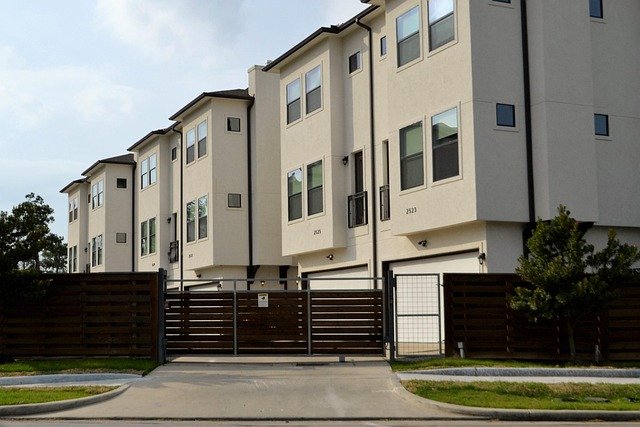A Comprehensive Guide on Requirements to Rent an Apartment in California for Seniors
Renting an apartment in California as a senior involves understanding specific requirements, documentation, and local regulations. From income verification to age restrictions in senior communities, navigating the rental market requires preparation and knowledge. This guide walks you through essential requirements, application processes, pricing considerations, and practical tips to make your apartment search smoother and more successful.

California’s rental market presents unique opportunities and challenges for seniors seeking housing. Whether downsizing from a family home or relocating for climate and lifestyle reasons, understanding the rental landscape helps ensure a successful transition. The state offers diverse housing options, from independent apartments to age-restricted communities, each with distinct requirements and benefits.
What Are the Basic Requirements to Rent an Apartment in California for Seniors
Most California landlords require prospective tenants to meet standard criteria regardless of age. These include proof of income, typically demonstrating that monthly rent does not exceed 30 percent of gross monthly income. Seniors receiving Social Security, pension income, or retirement account distributions must provide documentation such as award letters, bank statements, or tax returns. A credit check is standard practice, though some landlords may be flexible with seniors who have limited credit history but strong financial reserves. Background checks verify rental history and criminal records. Additionally, landlords may request references from previous landlords or personal contacts. Age-restricted senior communities, designated for residents 55 or older, require proof of age through government-issued identification. California law prohibits discrimination based on age, source of income, or disability, offering protections for senior renters throughout the application process.
Understanding the Application and Process
The rental application process begins with completing a detailed form that requests personal information, employment or income history, and references. Seniors should gather necessary documents beforehand, including government-issued photo identification, Social Security award letters, pension statements, bank statements showing adequate reserves, and contact information for previous landlords. Application fees typically range from 30 to 50 dollars per applicant and cover credit and background checks. Processing time varies from a few days to two weeks depending on the landlord or property management company. Some properties require an in-person or virtual interview, particularly in senior communities with waiting lists. Once approved, tenants sign a lease agreement outlining terms, rent amount, security deposit requirements, and rules. California law limits security deposits to two months’ rent for unfurnished units and three months’ rent for furnished units. Seniors should carefully review lease terms, including pet policies, maintenance responsibilities, and renewal conditions before signing.
Current Rent Prices Across California
Rent prices in California vary significantly by region, with coastal cities commanding premium rates while inland areas offer more affordable options. Understanding pricing helps seniors budget effectively and identify suitable locations.
| City/Region | Average 1-Bedroom Rent | Average 2-Bedroom Rent |
|---|---|---|
| Los Angeles | $2,400 - $2,800 | $3,200 - $3,800 |
| San Francisco | $2,800 - $3,400 | $3,800 - $4,600 |
| San Diego | $2,200 - $2,600 | $2,900 - $3,500 |
| Sacramento | $1,400 - $1,700 | $1,800 - $2,200 |
| Fresno | $1,100 - $1,400 | $1,400 - $1,800 |
| Riverside | $1,500 - $1,900 | $1,900 - $2,400 |
Prices, rates, or cost estimates mentioned in this article are based on the latest available information but may change over time. Independent research is advised before making financial decisions.
Senior-designated communities may include additional services such as transportation, social activities, or meal plans, which can increase monthly costs but provide added value and convenience. Rent control ordinances in certain California cities limit annual rent increases, offering stability for long-term tenants.
How Can Seniors Plan an Easy Move
Planning reduces stress and ensures a smooth transition to a new apartment. Seniors should begin by decluttering and downsizing possessions, donating or selling items no longer needed. Creating a moving timeline with specific tasks and deadlines helps maintain organization. Hiring professional movers experienced with senior relocations can alleviate physical strain and provide packing assistance. Alternatively, family members or senior move management services offer personalized support. Updating addresses with government agencies, financial institutions, healthcare providers, and subscription services prevents service interruptions. Arranging utilities such as electricity, water, gas, internet, and phone service before move-in day ensures immediate functionality. Seniors should also transfer prescriptions to nearby pharmacies and establish care with local physicians. Familiarizing themselves with the new neighborhood, including grocery stores, medical facilities, and community centers, helps ease adjustment. Packing an essentials box with medications, important documents, clothing, and toiletries ensures necessities remain accessible during the move.
Important Things to Keep in Mind
Several considerations can impact the rental experience for seniors in California. Accessibility features such as elevators, ramps, grab bars, and wide doorways accommodate mobility challenges and comply with Fair Housing Act requirements. Proximity to healthcare facilities, public transportation, and shopping centers enhances convenience and independence. Understanding tenant rights under California law protects against unfair practices, including illegal eviction, discrimination, and inadequate maintenance. Seniors should review the lease for clauses regarding rent increases, lease renewal terms, and early termination penalties. Renter’s insurance, though not legally required, provides valuable protection for personal belongings and liability coverage at relatively low cost. Building relationships with neighbors and participating in community activities fosters social connections and support networks. Seniors should also inquire about emergency response systems, security features, and on-site management availability. Finally, reviewing local resources such as senior centers, meal programs, and transportation services helps maximize quality of life in the new community.
Conclusion
Renting an apartment in California as a senior requires careful preparation, understanding of requirements, and awareness of available resources. By gathering necessary documentation, researching rental markets, and planning strategically, seniors can navigate the process confidently and secure housing that meets their needs and budget. California’s diverse communities offer numerous options, from urban centers to quieter suburban settings, each providing unique advantages for senior living.




